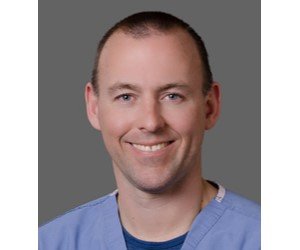The AAMC Premed Team recently conducted a few twitter polls which asked premeds to share what you are looking for in a medical school. We received hundreds of responses, and while a school’s mission statement and scholarship opportunities were both important influences, the results pointed to one factor above all others: location!
premedical
Five Mistakes I Made When I Applied to Medical School (The First Time)
Everyone reading SDN likely knows that gaining admission to medical school is difficult. It not … Read more
4 New Year’s Resolutions for MCAT Test-Takers
Plotting out your course of study in anticipation of any MCAT test date is difficult … Read more
The Only Five Criteria to Consider When Choosing A Medical School
Hospital cafeteria food. Malignancy or benign-ness. Patient population seen in the third and fourth years. … Read more
Preparing For Your Interview: A Master Class
This interview season, Student Doctor Network has partnered with the admissions team at the Medical … Read more
What Medical Schools Are Looking For: Understanding the 15 Core Competencies
When you think about how medical schools will evaluate your application, it can seem like … Read more
How Do I Know Which Medical School is Right for Me?
Receiving multiple admissions offers to medical school can be both thrilling and daunting for prospective … Read more
5 Steps to Earning a 90th-Percentile MCAT Score
Famous Notre Dame football coach Lou Holtz once remarked, “When my teams took second place, the fans called me an idiot. A guy who finished last in medical school is still called a ‘doctor’. Hardly seems fair.”
Lou’s pithy comment may be true for students already in medical school. However, if you are a premed student, finishing last, or even in the middle of the pack, dooms your chances of going to a quality medical school. Every year, students face fierce competition. Scoring “above average” isn’t enough. To be highly competitive as an out-of-state applicant at schools across the country, you need a strong MCAT score—usually in the 90th percentile or above.
4 Ways to Address a Low MCAT Score on Your AMCAS Application
Overcoming a low MCAT score on your AMCAS application can feel daunting. Can they really judge my whole application by my performance on one 8 hour block of life!!? Sadly, most schools do put extensive emphasis on MCAT scores. However, a low score is not the end of the world if you are within the range of applicants to a particular school. Ask yourself: What do medical schools look for? The answer is more dynamic than just a good MCAT score…
Ending Premed Naivety: Understanding the Realities of a Medical Career
The only real recollections I have of visiting the hospital before college were once as a child undergoing a tonsillectomy and once as a preteen to visit my newborn cousin. Fast forward ten years or so and suddenly I was a freshman in college shadowing a medical professional and trying to decide if I wanted to commit the rest of my life to medicine. It was the first time I really saw medicine for what it was, and it was nothing like I had imagined.
As someone without any relatives or close acquaintances in a health profession, I grew up with a lot of misconceptions about medicine as a career. Like many of you, I will be the first in my family to attend medical school. On many fronts, I have had to discard my preconceived notions about medicine for an understanding borne of proximity and experience. Before beginning the premed journey, I was blissfully unaware of two components of the medical field: the realities of daily work and the lifestyle demands.
5 Tips for Finding and Working With a Mentor
Do you know anyone who raves about their mentor? A mentor can offer you expertise and motivation as you work toward your goal of entering medical school and becoming a doctor. A medical student, professor, physician, or anyone with experience and knowledge in the medical field who is able listen, relate, and help invest in your future can be a mentor. For example, finding a mentor who is a physician can provide you with the perspective of someone currently in the profession. Whereas a medical student can give you the first hand perspective of someone who has recently gone through the application process and is currently working toward their degree.
How to Have a Successful Premedical Freshman Year
The transition from high school to college is stressful for many students, and perhaps more so for those who already have their hearts set on attending medical school. For newly-minted premedical students, the first two semesters of college can represent the first steps toward their professional goals, and the prospect of doing less than their anticipated best is daunting. If you are one such new premedical student, you may be asking what steps you can take to maximize your success in your freshman year of college. How will you manage a new kind of social life? Which clubs and outreach activities should you consider? And most of all, how will you navigate your first academic course load as a premedical student? If you’re pondering any of these questions, read on for some tips about how to have a successful first year in college.
How Do College and Medical School Classes Differ?
As a premedical student, you are likely familiar with some of the subjects that are covered in the standard medical school curriculum. After all, how different could biochemistry in medical school be from undergraduate biochemistry?
While your premedical courses will certainly provide you with a strong background with which to approach medical school, it is imperative that you understand that undergraduate classes differ substantially from medical school courses in both difficulty and breadth of content. Think of your undergraduate science education as preparation for medical school—not as an opportunity to cover all of the material in one of your medical school classes prior to matriculation. Here are four key ways in which medical school courses differ from undergraduate classes, as well as some tips on how to deal with these differences:
How To Stay Afloat As A Premed
Sometimes it feels like prepping for med school really is like bracing yourself against the … Read more
Considering Rejection: Lessons Learned From an ESL Classroom
I was seated on a child-sized plastic chair along a wall in the classroom when the teacher summoned me to the front of the room. She handed me a sheet of stickers and, in broken English that was heavily accented, indicated that my task was to watch the approximately twenty children in front of me as they practiced their English vocabulary and reward those who performed the best. This was several weeks into my six-week adventure of teaching English in China during a gap semester after graduation; this was nine months after beginning my application cycle for medical school that remained an open-ended endeavor yet to discover its fate.
Four Tips for Completing Your AMCAS Application
The 2018 AMCAS application cycle has started! If you plan to apply to attend medical school starting in Fall 2018, the application is now open for you to begin working through the nine different sections of the application. While the application is straightforward, it can be easy to make simple mistakes that can delay the verification process. To help you fill out an application that may be processed faster, we asked for tips from the AMCAS Verifications Team, as they review and process thousands of AMCAS applications each year. The Verification Team provided us with some important tips to help you avoid making mistakes and ensure your application gets successfully verified.
20 Questions: Tyler Edwards, MD, Family Medicine
Dr. Tyler Edwards is an attending physician who specializes in family medicine, practicing for almost 15 years. In addition to his duties as a family physician, Dr. Edwards also works as a hospitalist at Frisbie Memorial Hospital, the same hospital in which his outpatient practice is affiliated. After graduating from Pennsylvania State University in 1995 with a bachelor’s degree in biochemistry, he matriculated at the University of Connecticut School of Medicine, subsequently earning his M.D. degree in 1999. He thereupon moved to Ogden, Utah, to complete his McKay-Dee Family Medicine Residency program, which lasted three years. Dr. Edwards has been married for 18 years and has four children. As a keen advocate for exercise, he enjoys physical, outdoor activities, such as cross-country skiing, running, swimming, and hiking.
Improve Your CARS Reading Speed by Quickly Finding the Main Idea
The CARS section of the MCAT Exam can be really scary. It’s not that you don’t know how to read. The problem is that you don’t know how to read critically, and that’s a whole different way of analyzing a passage. Trying to decipher a CARS passage with the same skills that you use to read a science text is like trying to play tennis with a golf club. You need different tools, and the first tool you need to help you read faster and have a clear understanding of a passage is a basic knowledge of Rhetoric.
Time Away From Formal Academics Can Enhance Application
Whether or not a student should take a “gap year” (or two) often comes up during our conversations with applicants to medical school. Based on MedEdits’ experience working with students, we find that gap years are becoming increasingly common and that this extra time away from formal academics can enhance a student’s candidacy.
The Association of American Medical College’s (AAMC) 2016 Matriculating Student Questionnaire (MSQ) reports that the age of matriculants continues to rise, with 60.6% reporting that more than a year had passed since graduating from college, up from 57.9% in the 2014 MSQ. Matriculation data from colleges of osteopathic medicine show that the average age at matriculation in both 2015 and 2016 was 24.
A Med Student’s Guide to Becoming a Physician-Scientist
When medical students start to think about areas of practice to specialize in once they graduate, the area of medical research can sometimes be overlooked in favor of more traditional practice areas such as internal medicine or surgery. However, for some doctors-to-be, the pull towards such research is strong and it is an important part of the healthcare system, as the discoveries that such scientists make can have an impact on techniques used to improve patient care and outcomes.
This article covers the work and scope of physician-scientists as well as educational pathways these professionals pursue in order to undertake their important work.




















